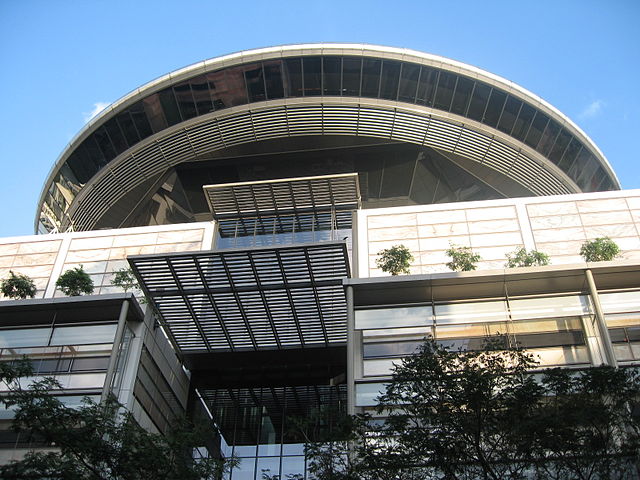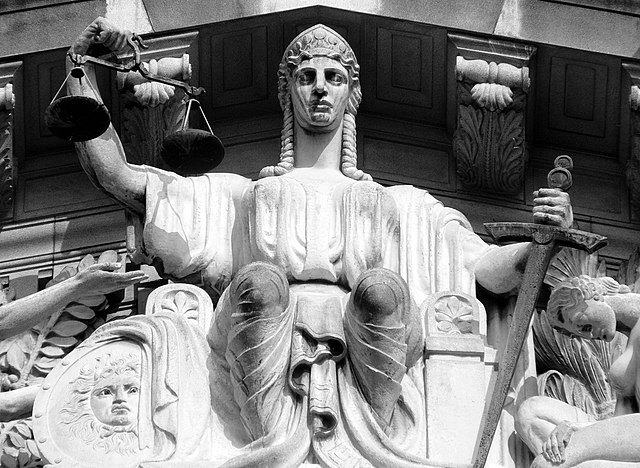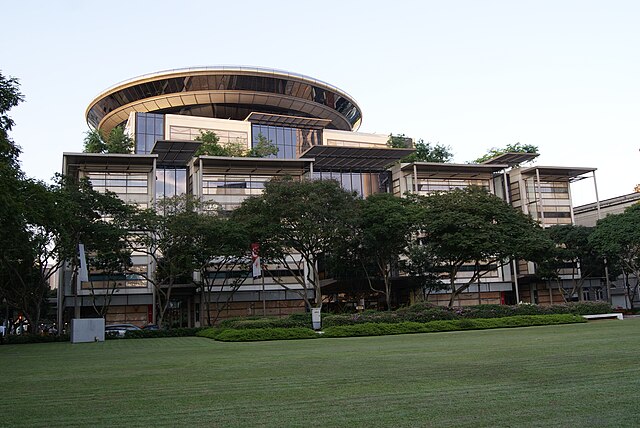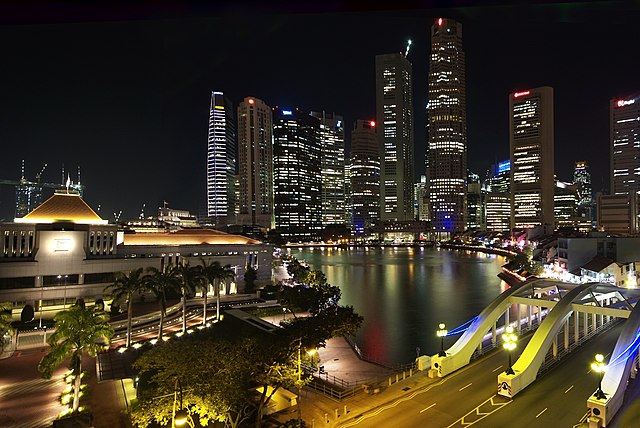Procedural impropriety in Singapore administrative law
Procedural impropriety in Singapore administrative law is one of the three broad categories of judicial review, the other two being illegality and irrationality. A public authority commits procedural impropriety if it fails to properly observe either statutory procedural requirements, or common law rules of natural justice and fairness.
The Supreme Court of Singapore, which is made up of the Court of Appeal and the High Court. One of the broad categories of judicial review recognized by these courts is procedural impropriety.
A sculpture of Lady Justice by Rodolfo Nolli in the tympanum of the Old Supreme Court Building. The rule against bias is regarded as one of the two pillars of natural justice.
Japanese soldiers on trial for war crimes in the Old Supreme Court Building on 21 January 1946. The rule of fair hearing, which is one of the two pillars of natural justice, requires that no one ought to be condemned unheard.
The Law Society of Singapore's headquarters along South Bridge Road. A disciplinary penalty imposed on a lawyer by the Society was set aside by the High Court in a 1998 case because the chairman of the Inquiry Committee had contacted a witness without informing the lawyer.
Administrative law in Singapore
Administrative law in Singapore is a branch of public law that is concerned with the control of governmental powers as exercised through its various administrative agencies. Administrative law requires administrators – ministers, civil servants and public authorities – to act fairly, reasonably and in accordance with the law. Singapore administrative law is largely based on English administrative law, which the nation inherited at independence in 1965.
The Supreme Court of Singapore. The High Court, which is housed in this building, conducts judicial review of administrative action in Singapore by exercising its supervisory jurisdiction.
Parliament House (left) at night, photographed in December 2009. Judicial review of administrative action is important in Singapore because the executive dominates Parliament's legislative agenda.
Traffic signals along Stamford Road, Singapore. In Singapore, the courts are said to emphasise a largely green-light approach towards administrative law
Public housing built by the Housing and Development Board (HDB) in Woodlands. In a 1984 case, the High Court held that the HDB had acted unlawfully by compulsorily acquiring a flat when it had no power to do so.








